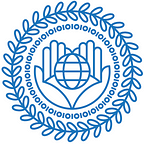There’s broad bipartisan support for a better international response in COVID-19 funding: why can’t the U.S. deliver?
The forthcoming CARES Act 2.0 (HEROES Act) will deliver the next critical tranche of COVID-19 supplemental funding. Unfortunately, it is expected to provide little to no foreign assistance. While the United States’ domestic needs remain high, the U.S. cannot ignore the pandemic’s devastating and destabilizing impacts globally, especially in conflict-affected and fragile states. The U.S. must increase foreign assistance to prevent and contain this pandemic through conflict prevention and stability programming.
The international development community has declared that the U.S. must mount a robust international response to the global pandemic. Senator Marco Rubio and Senator Ben Cardin agree— their bipartisan public letter states, “as long as this pandemic is spreading anywhere in the world, Americans are vulnerable.” Further, they warn that “70 percent of the world remains unprepared to prevent, detect, and respond to a public health emergency … it is clear that no matter how successful we are at fighting COVID-19 here at home, we will never stop its spread — or prevent it from rebounding back to our shores — if we are not also fighting it around the world.”
Failure of the U.S. to deliver a robust and integrated international response will result in an uncontained virus, accelerated conflict dynamics in conflict-affected and fragile states, and will ultimately harm the United States’ national security.
Shockingly, the House version of this Bill — released in May 2020— included no funding for foreign assistance. The Senate version released on July 27 includes $4.345 billion in State, Foreign Operations, and Related Programs (SFOPS); however, this funding is only allocated for vaccine development and distribution, operational support, and consular services and does not provide any funding to contain and prevent the pandemic and its destabilizing impacts.
Fragile and conflict-affected states are disproportionately impacted by the virus, as COVID-19 is quickly accelerating existing conflict dynamics. Beyond the health implications, the COVID-19 pandemic poses far-reaching and long-term dangers through the disruption of effective governance, collapse of economies, and significant threats to human and food security. AfP’s members working globally are regularly reporting on the worsening conflict dynamics, the decimation of economies, and longstanding peace processes being brought to a halt. COVID-19 has proven itself to be more than just a public health emergency — it is stabilization in reverse.
These states are already highly vulnerable to shocks and destabilizing trends. In Yemen, the pandemic is worsening the effects of the war, as millions are facing famine, water shortages, and lack of access to health care. Throughout Africa, the number of COVID-19 cases has been steadily increasing and fragile states are particularly vulnerable to the impacts of the pandemic. Still, even in more democratic states, the pandemic is taking a toll on civil society space, democratic institutions, human rights, and health systems. Latin America is a hotspot for the virus; the countries in this region were already suffering from exacerbated inequalities and are now facing “the worst recession in the region in a century.”
Marginalized communities, including women and youth, are particularly vulnerable. Since the beginning of the pandemic, violence against women is increasing significantly. Additionally, many women are frontline workers, such as nurses and caregivers, risking increased exposure to themselves and their families. Many communities scapegoat their youth population as vectors for spreading the disease due to their overall lower infection rate.
The good news is that local peacebuilders and organizations are addressing the rising levels of violence — but they need more support from the international community. Local civil society on the frontlines of the pandemic are trusted in their communities, and they are working to deliver conflict-sensitive aid to vulnerable populations without exacerbating conflict dynamics. In South Sudan, civil society organizations are reaching communities using door-to-door outreach and radios to spread information about the virus, including proper safety guidelines and updates from health organizations. In Brazil, women-led civil society organizations are mobilizing networks to fill gaps in the government’s response to the virus, while teaching other women economic autonomy, such as face mask production.
Global security and stability cannot wait for future possible funding packages, or even the next fiscal year, because the pandemic’s destabilizing effects will be more significant and even more challenging to contain and reverse. As Congress decides the next COVID-19 funding package there is an urgent need to prevent and contain the global pandemic and its destabilizing impacts, both at home and abroad.
Liz Hume, JD, MA, is the Vice President of the Alliance for Peacebuilding, which represents over 120 of the top conflict prevention and peacebuilding organizations working in 153 countries. She is an expert in conflict analysis, policy and programming.
Megan Schleicher is the Senior Associate for Policy and Communications at the Alliance for Peacebuilding. She leads AfP’s works on Youth, Peace, and Security and locally-led peacebuilding.
